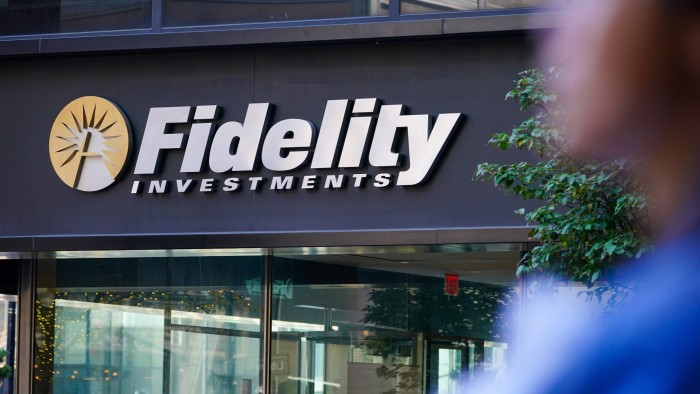Unlock the White House Watch newsletter for free
Your guide to what the 2024 US election means for Washington and the world
Fidelity Investments is planning to launch its own stablecoin, deepening the $5tn asset manager’s push into digital assets as the US prepares its first regulatory framework for cryptocurrencies.
The Boston-based fund firm is in the advanced stages of testing its token, which is designed to act as cash in cryptocurrency markets and will be managed through its digital assets arm, according to two people with knowledge of the plans.
Fidelity’s launch is part of its expansion into the nascent market for tokenised versions of US Treasuries. Late last week it filed to launch a digital version of a US money market fund at the end of May, in direct competition with traditional asset manager rivals BlackRock and Franklin Templeton.
Its move comes as Washington begins sweeping changes in the oversight of cryptocurrencies following the election of President Donald Trump.
His crypto-friendly approach marks a sharp break with the Biden administration, which had taken a far more sceptical view.
Trump has pledged to promote the growth of “lawful and legitimate” dollar-backed stablecoins to support the US currency and called for supporting legislation to be ready to be signed into law by August.
Politicians in Washington are debating rival bills to begin regulation of stablecoins, which are designed to hold a constant value per coin and serve as a ready cash reserve outside the regulated banking system.
Most are pegged to the US dollar and are backed one to one by reserves held in US Treasuries, with operators managing the risks and keeping for themselves the interest paid out on the bond. There are about $234bn of stablecoins in circulation globally, with most issued offshore by El Salvador-based Tether.
Critics have warned they pose potential risks to financial stability and can serve as new avenues for consumer fraud.
Fund groups — as well as cryptocurrency companies Ondo Finance and Hashnote, owned by stablecoin operator Circle — have been experimenting with security-like tokens that pay out interest and serve as instant collateral for trading. These tokenised money market funds have attracted more than $5bn, according to data provider RWA.xyz.
Advocates see tokenised money market funds, in contrast to stablecoins, as regulated, onshore deposits. However, critics have argued that existing tokenised funds lack the deep, liquid secondary markets that stablecoins typically have.
Tokenisation could transform the financial services industry, according to Cynthia Lo Bessette, head of digital asset management at Fidelity Investments.
One use case to improve the efficiency of capital markets was using tokenised assets as collateral to meet margin requirements in trading, she added.
In a separate move on Tuesday, World Liberty Financial, the crypto project promoted by Trump and his sons, said it planned to launch its own stablecoin. The coin’s reserves will be backed by short-term US Treasuries and other cash equivalents. World Liberty was co-founded by the son of Trump’s Middle East envoy Steve Witkoff.







